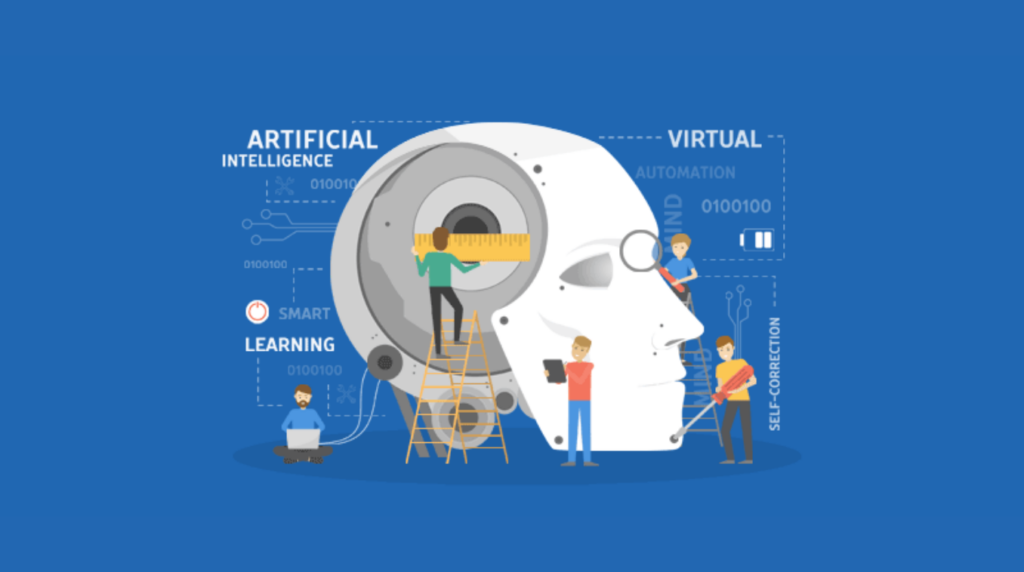Artificial Intelligence (AI) has proven to reshape the landscape of our modern lives. From the AI virtual assistants of Siri and Alexa who dictate your schedule on command to the self-driving cars you see navigating the highway, the evolution towards automated production and systems has morphed into a more personalised and convenient way of providing goods and services.
The AI industry is poised for exponential global growth. In particular, Artificial Intelligence is changing the face of the insurance industry.
Artificial Intelligence Quick Facts
Industry trends indicate the Artificial Intelligence industry is expected to increase to almost $60 billion by 2025 (up from $1.4 billion in 2016). Whether it’s AI’s impact on investments and startups, big data, robots, the full market overview, or virtual digital assistants, the future for the AI industry is looking bright.
- Over the course of the past two decades, AI startups grew 14 times over.
- By 2030 Global GDP is expected to grow by $15.7 trillion.
- Google analysts believe by 2020 AI robots will become smart enough to mimic complex human behavior, such as conversational banter.
- More than 45% of digitally mature organisations and companies who have advanced digital practices have a defined AI strategy.
As impressive as these statistics are, the question remains – exactly how can AI innovate, streamline, and improve the insurance industry?

Benefits of AI within the Insurance Industry
As the AI industry continues to innovate and evolve, we can expect to see many benefits within the insurance industry.
- Behavioral Policy Pricing: Leveraging the power of the Internet of Things (IoT), AI sensors will efficiently provide personalised data to pricing platforms. For example, safe drivers may pay less for auto insurance, and individuals with healthier lifestyles may pay less for health insurance and/or life insurance.
- Enhanced Customer Experience: AI will facilitate a seamless automated buying experience. Using chatbots, agents and brokers will gain instant access to their client data. This allows agents to draw on their clients’ geographic and social data for more personalised interactions. Additionally, AI will empower carriers to customise policies, tailored with specific items and events suited to their clients’ specific needs (i.e. ‘on-demand insurance’).
- Behavioral Policy Pricing: Leveraging the power of the Internet of Things (IoT), AI sensors will efficiently provide personalised data to pricing platforms. For example, safe drivers may pay less for auto insurance, and individuals with healthier lifestyles may pay less for health insurance and/or life insurance.
- Enhanced Customer Experience: AI will facilitate a seamless automated buying experience. Using chatbots, agents and brokers will gain instant access to their client data. This allows agents to draw on their clients’ geographic and social data for more personalised interactions. Additionally, AI will empower carriers to customise policies, tailored with specific items and events suited to their clients’ specific needs (i.e. ‘on-demand insurance’).
- Enhanced Claims Settlement: Virtual claims adjusters and online interfaces will streamline claims processing, resulting in more efficient methods to settle and pay claims following an accident. Additionally, AI technology will simultaneously decrease the potential for claims fraud.
- Enhanced Underwriting Procedures– Underwriting is a costly process. It requires survey questions and lifestyle checks to accurately assess client risk to determine premium qualification and prices. Medical records, professional affiliation, and even social media interactions offer data online that AI can use to determine an individual’s risk management to provide the best premium. Essentially, AI can improve ROI and propel growth by instantly locating successful leads online.
- Minimise Fraudulent Claims– Insurance fraud is one of the biggest problems in the industry, and AI has the potential to mitigate it. Machine Learning (ML) algorithms help detect fraud by recognising patterns that may slip beyond human recognition. The ML automatically filters through claims to determine which claims are valid and which are fraudulent. As new data presents itself, the machine determines from previous data patterns of fraudulent claims to successfully improve the fraud detection process. Ultimately, the program becomes more efficient as it is used to lessen or eliminate fraudulent claims in the future.
Petra Insurance
At Petra Insurance Brokers, we leverage the power of over 50 years of industry experience with the latest innovative technologies and best practices to protect your personal and organisational interests. If you are interested in learning more about how our risk management and insurance solutions can benefit your organisation, contact a member of our team to schedule your free consultation.

RAMZI GHURANI
Managing Partner




